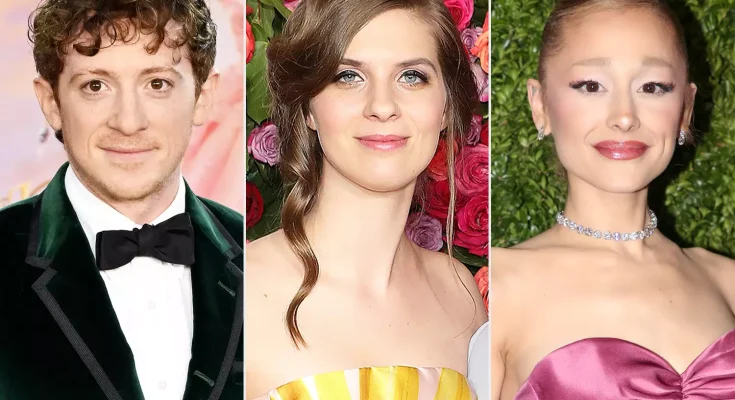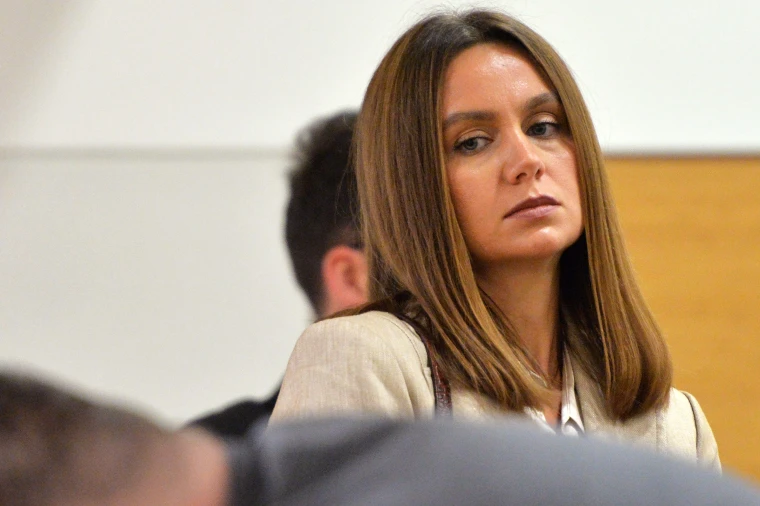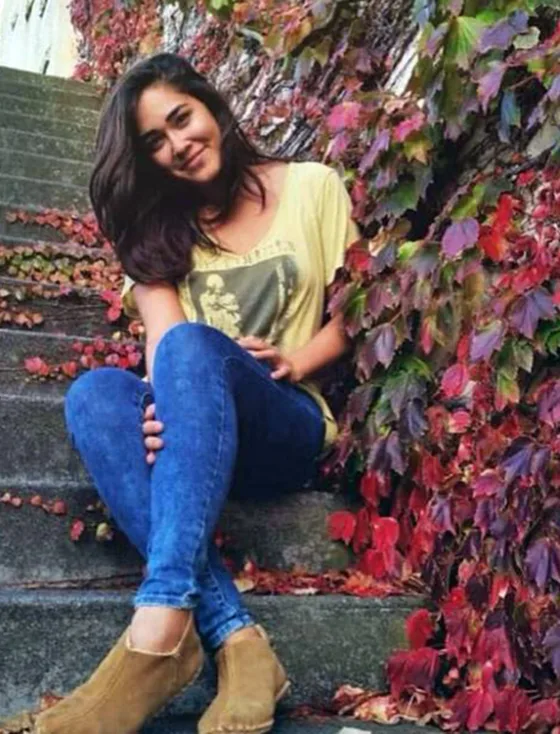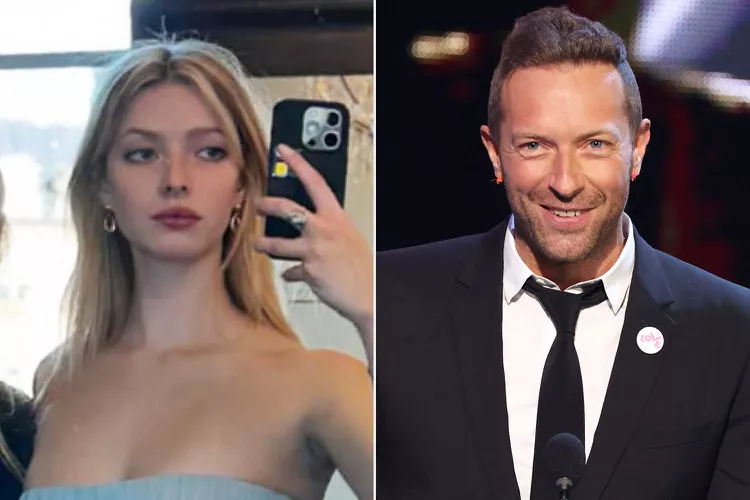Lilly Jay is reflecting on the fallout after her marriage with Ethan Slater ended.
In an essay for The Cut published Thursday, Dec. 18, Jay, a clinical psychologist specializing in perinatal mental health and child development, wrote about Slater’s relationship with his Wicked costar Ariana Grande (though she doesn’t mention the pop star by name) after their split and the difficulties she faced as a result.
Much of Jay’s words also address her life as a mom to her and Slater’s 2-year-old son in the context of their divorce. As she explained, “Motherhood, I have learned, fills your time but not your mind.”
“In the countless hours I spend rocking my son to sleep, pushing his stroller, marveling at his sweaty little hands grasping a crayon, I work diligently on my private project of accepting the sudden public downfall of my marriage,” Jay continued. “This, I tell myself, is nothing to be ashamed of and nothing to hide.”
:max_bytes(150000):strip_icc():focal(785x252:787x254):format(webp)/Ethan-Slater-lilly-jay-ariana-grande-121924-fff6bb5a574b41b48143bde8580a23fe.jpg)
She added, “Slowly but surely, I have come to believe that in the absence of the life I planned with my high-school sweetheart, a lifetime of sweetness is waiting for me and my child.”
Slater, 32, and Grande, 31, began dating after his separation from Jay earlier this year and following her separation from ex-husband Dalton Gomez.
The Broadway actor’s divorce from Jay was finalized in September, 12 years after they began dating and nearly six years after their November 2018 wedding. (Their son was born in August 2022.
:max_bytes(150000):strip_icc():focal(542x116:544x118):format(webp)/ethan-slater-lilly-jay-arianda-grande-072723-5-66f74725ff074c1fab1df672d4f983b2.jpg)
Earlier in her essay, Jay admitted, “No one gets married thinking they’ll get divorced, in the same way we don’t board a plane expecting to crash. But I really never thought I would get divorced. Especially not just after giving birth to my first child and especially not in the shadow of my husband’s new relationship with a celebrity.”
“In this season of shock and mourning, over a year after the end of my marriage was made public, I deeply miss the life of invisibility I created for myself as a psychologist specializing in women’s mental health,” she continued.
:max_bytes(150000):strip_icc():focal(745x148:747x150):format(webp)/ethan-slater-lilly-jay-arianda-grande-072723-tout-7e0c603c80304f398cd0992e2a9234d6.jpg)
Jay wrote that “people from [her] past have reached out to say they saw my face in a tabloid,” in relation to the controversy. But on the flip side, her “patients have remained silent.”
“At the Children’s Hospital, my invisibility was welcome protection from hard conversations for me and my patients,” she also said. “And while I still firmly believe in following my patients’ leads and not presuming to know what parts of my personhood resonate with them, the publicity I did not consent to increasingly feels like both a challenge and an opportunity.”
“If I’m discovered — as what, being vulnerable? — perhaps it could be a point of connection rather than a clinical liability,” she continued.
Jay admitted that she “feared that loss of control and postpartum depression would destroy me” for her “entire adult life” — something that ended up happening. But she insisted she is “okay.”
“If I can’t be invisible anymore, I may as well introduce myself,” she added. “You know how a sponge is most effective at absorbing liquid when it’s already a bit wet? Maybe we can think about my messy not-so-personal life in that way: a dose of my own loss, rage, powerlessness, sadness that helps me hold yours.”
She also wrote of co-parenting, “While our partnership has changed, our parenthood has not. Both of us fiercely love our son 100 percent of the time, regardless of how our parenting time is divided.”



